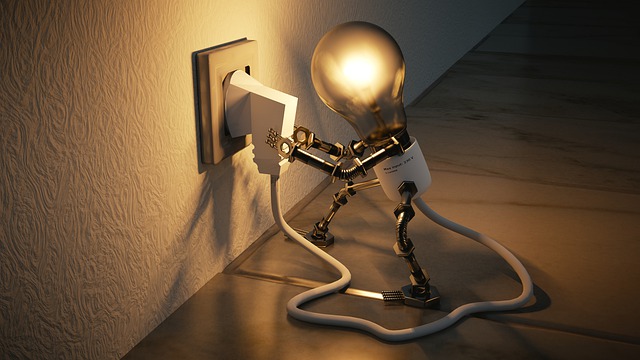How to Save Energy by Changing Your Behaviour
Conserving energy is apparently a step that we all take seriously. We take a lot of effort in trying to lessen the energy used in our homes, businesses and other establishments. Some of the steps taken are looking into high-efficiency light bulbs, dishwashers and air conditioners, using advanced weather stripping to seal our windows, append insulation in our attics and considering fuel-economy ratings when buying the next car. Apparently, all these physical ways can really help big but there is also another way to help gradually but surely save energy without the need to throw so much hard work. That is through changing our behaviour. Managing your household in a more energy-efficient manner will bring a lot of difference and result to a good variation of a factor or two in the energy bill.
Most common habits that will help save energy
1. Turn off the Lights
The most familiar and equally most effective action that can totally help save the energy is by turning off lights that are not needed. Indeed, all of those nags and rants from your parents when you forget to turn off the lights in the toilet and in the kitchen can really go a long way. A lot of us can be found guilty letting all the lights inside our homes lit even when they are not in use. Some households rely on special devices such as occupancy sensors that automatically turn off the light when people leave the room. However, we do not need to spend further money on these sensors, developing a tradition of closely paying attention and bearing in mind is the easiest solution.
2. Turn down the heat and close off vacant parts of your home
Energy bill is mostly beat up during the cold season. The way you set the thermostats can make a big impact on your heating energy. The most recommended way is to use set-back and programmable thermostats. These advanced programmable thermostats enable multiple temperature settings during a 24-hour period and allow the temperature to be lowered during the time when people are out of the house. Furthermore, closing parts of the home that are not in use, say for example the guest rooms, can save a lot of energy. It does not really require that these portions should be generally blocked off as they should not be left too cold but distributing lesser heat to these unused parts will go a long way in saving energy.
3. Watch your water use
Households have very high demand for water per day. Statistically, an average household can consume 250 gallons of water a day. Now, how is this connected with the energy? As simple as most households’ energy demands go to the treating, heating, and pumping of water. This can be alleviated by simple ways of not letting the faucets run unnecessarily, taking shorter waters, cut back long baths and operate dishwashers and washing machines when they are full. Leaving the water running while brushing your teeth and shaving are definite ways of serious waste of energy. It is much better to have a pitcher of water ready in the fridge in case you want to rehydrate yourself and not leave the water tap until cold water comes out.
4. Unplug
We all have this misconception that turning off devices but not plugging them out can already save energy. Well, apparently, that is not the case. Turning off electrical appliances can only reduce carbon footprint. When they are remained plugged they still consume phantom energy that can cost a portion in your energy bill. Whenever you think of the hassle you get by unplugging the TV and speakers after every use, also think of other essential things that you can purchase by the money you save on your utility bills. You can actually connect all your entertainment cords to a power strip to do a simple one-time unplugging move. However, make sure that all these cords are not tangled and are safely done.
5. Reduce, reuse, recycle
This habit is generally a wholesome move for almost all saving efforts. The tradition of reducing our garbage through using reusable items will not only help in saving energy but also by saving Mother Earth in general. This is particularly because the recycling process consumes less energy and produces less carbon compared to extraction and processing of raw materials. Some of our grocery items now come in durable packages that we can reuse. If you are feeling a bit artsy and crafty, you can score some amazing recycling ideas on the internet that are mostly decorative and functional. There are also a lot of good things generated from disposing garbage properly. Make it a habit to include sending something to a landfill becomes a decision you will thoroughly reflect on.
Making simple changes in our behaviour at our own household is an efficient no-cost energy improvement that we can all get used to. Even if you do not replace your existing appliances with energy-efficient products, awesome habits in an effort to saving energy, no matter how small, can make a big difference. I only have a few lists of the most common ways in here and there are still hundreds of simple means to save energy in our homes through food preparation, cleaning, lighting, and climate control that you can start anytime from now on. You can begin by encouraging all your family members to take part in this new culture of saving energy at your behavioural expense. Or you can communicate with your local registered electrician for more tips on how to efficiently conserve energy.
Need help with your electrical services? Call me on 0403 026 531.
Read other articles What is the Difference between an Electrician and an Electrical Contractor?


Recent Comments